 My dear friend and devout in house Studio SWEATer, Kimberly, brings in these divine, fresh from her yard tangelos and oranges. They not only taste delicious, they support our immune system during the most vulnerable months (what a wicked season we just had, am I right?!) and fight abnormal cell growth (be gone cancer cells!). But, lately I’ve heard more “does fruit make you fat?”, and “I don’t eat fruit.” I always ask for the reasoning and most of what I hear is because of a diet they are on, fear of fruit sugar, or they simply aren’t in the habit of eating fruits.
My dear friend and devout in house Studio SWEATer, Kimberly, brings in these divine, fresh from her yard tangelos and oranges. They not only taste delicious, they support our immune system during the most vulnerable months (what a wicked season we just had, am I right?!) and fight abnormal cell growth (be gone cancer cells!). But, lately I’ve heard more “does fruit make you fat?”, and “I don’t eat fruit.” I always ask for the reasoning and most of what I hear is because of a diet they are on, fear of fruit sugar, or they simply aren’t in the habit of eating fruits.
My husband rarely eats fruit. The only time I have seen him eat fruit is when we get these insanely sweet strawberries from a Carlsbad strawberry farm near my Dad’s house. Why the strawberries and not the tangelos from Kimberly’s yard? He says that he only craves things he’s use to eating. He’s had strawberries so he was ok to have them again (4 times a year maybe…). So there you have it, he falls in to the third reason I mentioned above. I must mention it’s important to not push the people around us to eat a certain way even though it’s completely well-meaning and tempting. Rebellion is very strong in human behavior (especially my husband) so modelling is your best bet (what you do is what your kids will do-maybe even husbands). 😉
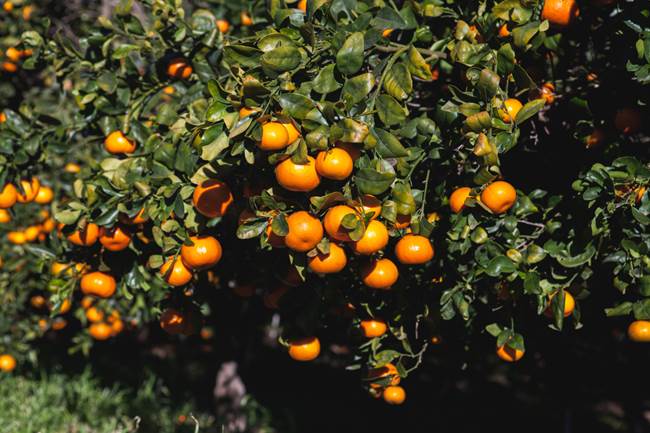
Low carb dieters (achem Ketogenic followers) demonize fruit saying it’s too high in sugar and carbs and they can’t have it. So… I decided I needed to address this matter in this month’s Focus on Food “Fruit Does Not Make You Fat.” Say it with me “fruit does NOT make you fat.” So now that we cleared that up, here are more reasons to dive in to the succulent sea of fruit:
1. It’s nutrient dense, NOT calorie dense (hello weight management!)
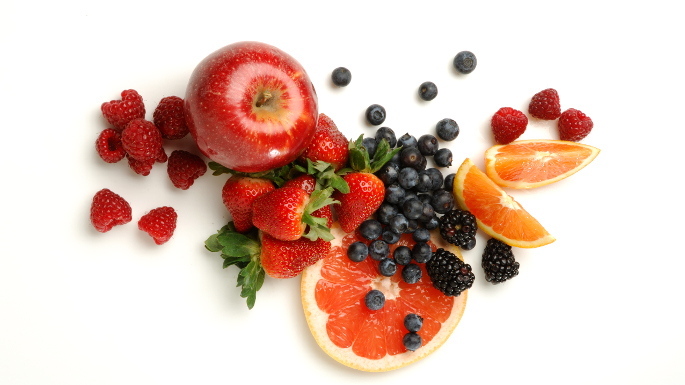
Fruit is famous for its vitamin C, but you can also expect an abundance of carotenoids (watermelon), folate (mango), potassium (bananas), and fiber (raspberries), for example. Some even supply some vitamin K (kiwi), calcium (kumquats), iron (dried peaches), or magnesium (blackberries), to name a few. Fresh fruit is low in calories per bite. That’s because it’s typically about 85 percent water. (Exception: dried fruits have less water therefore more calories.)
And it’s not just fewer calories per bite that makes fruit fill you up, but not out if you catch my drift. The intact structure of plant cells also seems to matter. You feel more full after eating an apple than after eating applesauce or drinking apple juice, even if the apple juice has enough added fiber to match the fiber in the apple.1 So, I’m sorry my juicing friends- you get much more satiety if you just ate the darn fruit. Smoothies are great if you leave all the peels on and drink it within an hour; still you will feel fuller from chomping on the whole fruit, but worlds better than juicing. And as mentioned above, dried fruit essentially concentrates the calories and sugar in smaller packets, making it easier to consume excess calories- but dried fruit is better than juice because it preserves the fruit’s cellular structure, along with the micronutrients. It also travels really well so you don’t have to be afraid of it; just make most of your fruit consumption intact and fresh.
In regards to which fruits are the lowest carb, or which fruits are best for losing weight… the short answer is the fruit that you will eat! Observational studies show that increased fruit consumption is tied to lower body weight and lower risk of obesity-associated diseases. Unlike processed foods which are usually digested in the first few feet of our intestines, fiber-rich fruit breaks down more slowly so it travels far longer through the digestive tract, triggering the satiety hormones that tend to cluster further down the small intestines. Fascinating right?!
3. It protects the heart & brain.
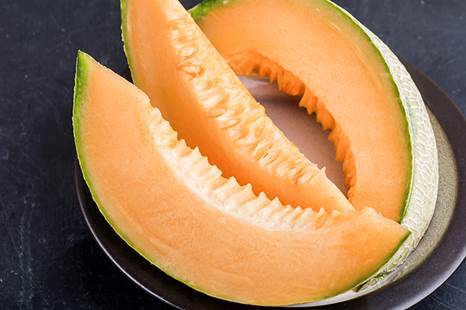
The DASH (Dietary Approaches to Stop Hypertension) diet can lower systolic blood pressure by 8 to 14 points—as much as some drugs. And fruit is a key building block of DASH, which has about five servings of fruit per day. (The servings are small: just one piece or ½ cup.)
Why does fruit matter? Fruit is typically a reliable source of blood-pressure-lowering potassium. Potassium is like opposite of what sodium does. Sodium makes you retain water and potassium helps you excrete it much like a dieretic. Feeling that bloat? Eat some fruit! What’s more, studies that track thousands of people for years find that those who eat more fruit have a lower risk of heart attack and stroke.2,3
Also, studies show a luscious bowl of berries every day might help keep your brain sharp as you age.4
3. It changes your intestinal flora
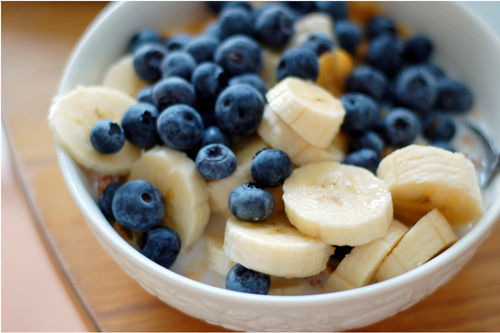
Fruit helps the good bacteria in your gut proliferate and thrive. Bananas for example work to maintain harmony among microbes in the bacterial community, known as phyla. This is one reason bananas can help with an upset tummy. Bananas may also reduce inflammation, due to high levels of potassium and magnesium. Another example are blueberries. Our eyes are naturally drawn to anthocyanins, the pigment that gives blueberries a bold color, for good reason. We’re not sure if it’s the antioxidants, vitamin K compounds, or fiber that gives blueberries clout as a superfood, but we’re impressed with the results. Studies continue to show blueberries may help strengthen our memory, improve our immune system, and diversify our gut bacteria.
4. It’s convenient.
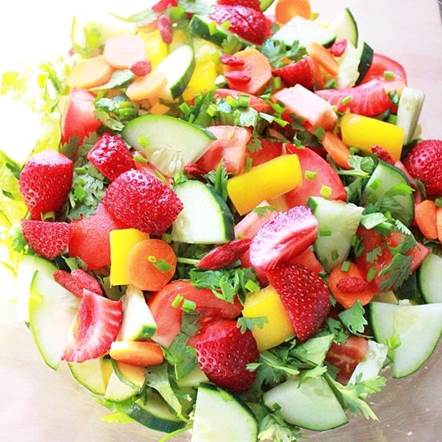
How many other foods require zero prep? At most, you might have to do a quick wash, pull off a peel, or cut some slices or chunks. But few foods are so convenient. Bonus: fruit is portable and—if it’s whole—typically needs no refrigeration. Holla! Make sure you practice this with your kids. They should always have some fresh fruit on hand. And it’s not just a satisfying snack. Jazz up your veggie salad with some fruit! Try some sliced apple, grapes, strawberries, or whatever floats your boat. Start with a Strawberry & Arugula Salad. Or a Quinoa & Fruit Salad. Or a Sweet & Savory Pear Salad. Yummers!
5. It can be cheap.
Yes, you can pay $6 for a pound of imported cherries in January. But, fresh fruit is fairly inexpensive in season. And some fruit, like bananas and most frozen fruit, is cheap all year long.
For tips on how to pick the best fruit, check our handy guide.
6. It’s delicious.
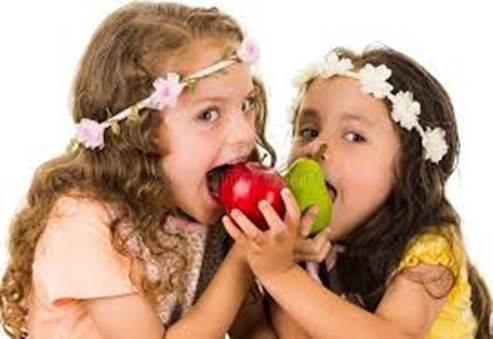
Who doesn’t thoroughly enjoy that sweet burst of goodness when biting in to some blueberries, watermelon, or honey crisp apple? And think of the range of textures, from a luxuriously creamy nectarine to a seed-studded pomegranate to a juicy tangerine.
Bonus: Fruit does double duty as dessert. Try this silky sorbet from Kate Sherwood, The Healthy Cook.
Mango Sorbet
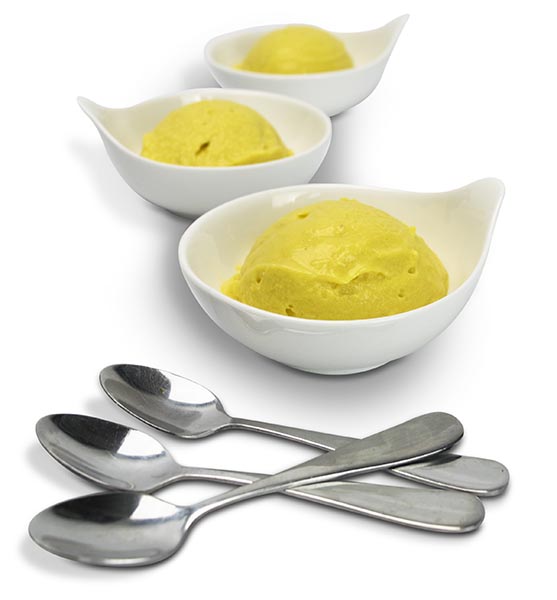
Makes 10 ½-cup servings.
3 cups chopped mango
2 cups chopped pineapple
2 bananas
½ cup unsweetened canned coconut milk
- In a food processor, purée all the ingredients until very smooth.
- Pour into a large zipper bag, lay flat, and freeze until solid, 3-4 hours.
- Break into chunks and process until smooth and creamy, about 5 minutes.
Are you salivating yet? That’s your body being wise. Now go eat some fruit! Love you all!
Miriam Turner
Studio SWEAT Dietitian
References
http://www.pcrm.org/media/online/sept2014/seven-foods-to-supercharge-your-gut-bacteria
https://jamanetwork.com/journals/jama/article-abstract/1693739?redirect=true
https://www.nutritionaction.com/daily/what-to-eat/5-reasons-to-eat-more-fruit/
1 Appetite 52: 416, 2009.
2 Am. J. Clin. Nutr. 98: 1514, 2013.
3 Stroke 45: 1613, 2014.
4 Ann. Neurol. 72: 135, 2012.


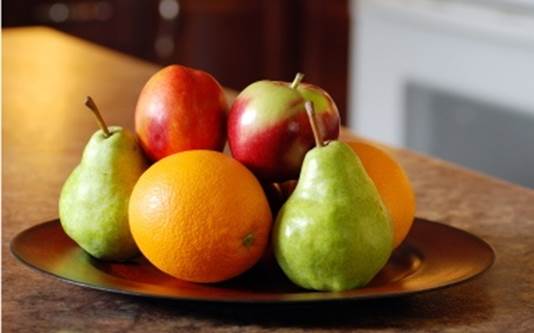

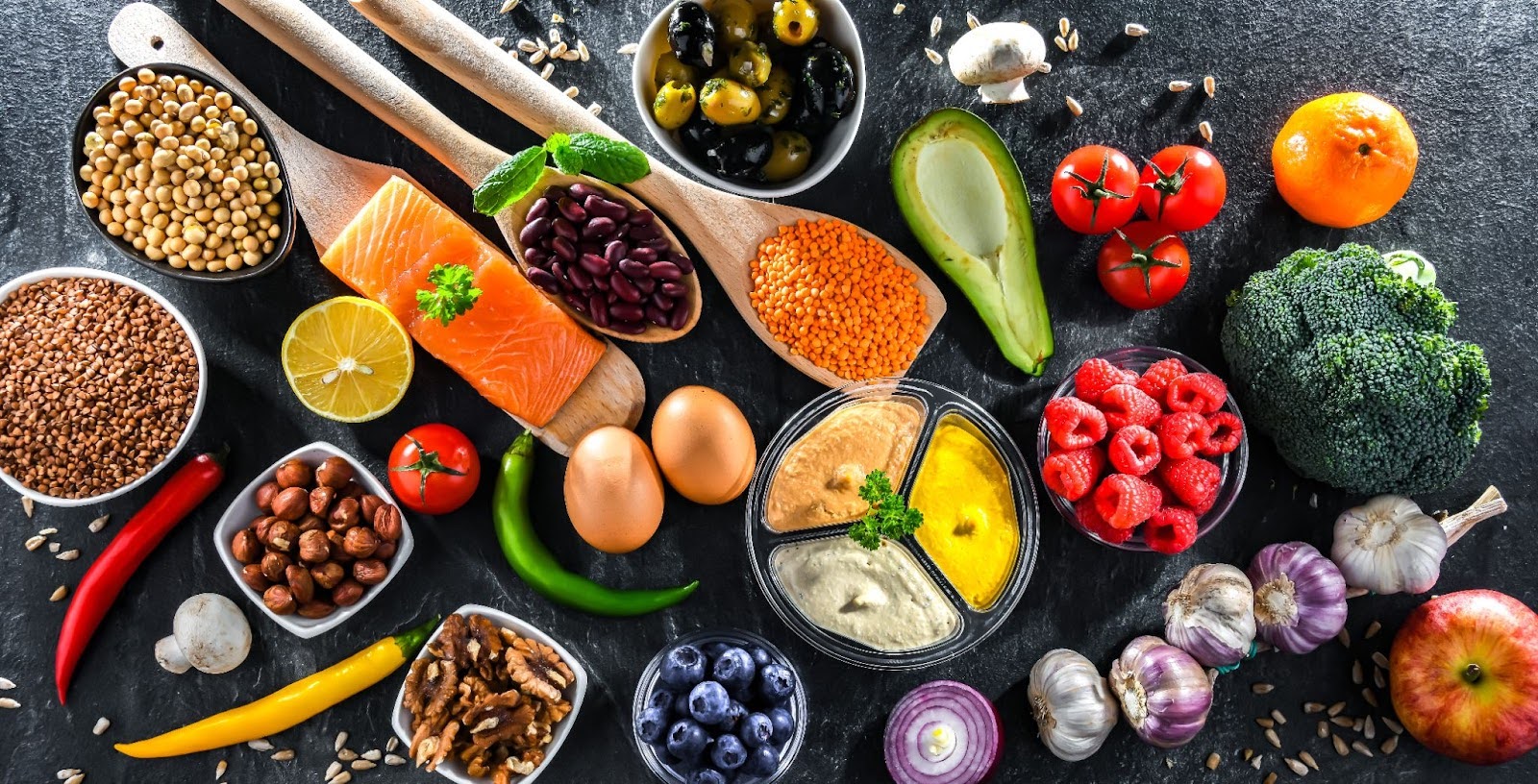





Comments - 0